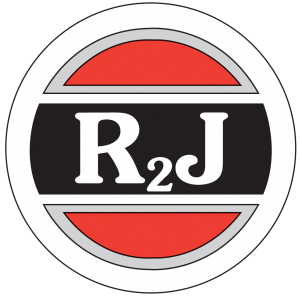Glycol System Leaks: Detection, Prevention & Cost Impacts
Aug 22, 2025For many commercial and industrial buildings in the Tampa Bay area, glycol systems are an essential part of keeping operations running smoothly. These systems protect chillers, HVAC units, and piping from damage caused by extreme temperatures, whether it’s preventing freezing in the winter or overheating in the summer. When they’re working properly, they help keep equipment efficient, safe, and reliable.
But when a glycol system develops a leak, even a small one, the consequences can be serious. Performance drops, operating costs rise, and equipment can suffer long-term damage. In some cases, the problem can escalate to complete system failure. For facility managers and building owners, identifying leaks early and addressing them promptly is critical if they want to avoid expensive repairs and downtime.
Signs of Glycol System Leaks
Knowing what to look for can help you address leaks before they turn into bigger problems.
Common signs include:
- Frequent fluid top-offs – If you’re adding glycol more often than usual, there’s probably a leak somewhere in the system.
- Pressure drops – A steady decline in system pressure can point to fluid loss.
- Corrosion or staining – Rust spots, residue, or discoloration around valves, pumps, or fittings often signal slow leaks.
- Inconsistent temperatures – If heating or cooling performance changes unexpectedly, glycol circulation may be compromised.
- Visible puddles or damp areas – Even small drips can lead to significant system damage over time.
While these issues may seem minor at first, they can reduce equipment lifespan, hurt system efficiency, and increase operational costs if ignored.
How to Detect & Prevent Glycol System Failure
Glycol leak detection and prevention should be a regular part of your facility’s maintenance plan. Proactive steps can keep your system in top shape and help you avoid expensive downtime.
You should:
- Schedule regular inspections – Check all pumps, joints, and piping for signs of wear, corrosion, or leaks.
- Test glycol quality – Regularly analyze concentration, pH, and inhibitor levels to maintain proper performance and prevent corrosion.
- Monitor system pressure – Use gauges or sensors to identify drops that could indicate fluid loss.
- Inspect seals and gaskets – Replace worn or damaged parts before they fail.
- Flush and clean the system – Remove scale, debris, and buildup to improve flow and reduce wear on equipment.
Preventive maintenance is almost always more cost-effective than emergency repairs. Incorporating glycol leak detection and prevention into your facility’s routine can protect your investment and keep operations running efficiently.
Professional Glycol System Services for Tampa Bay Facilities
At R2J Chemical Services, we specialize in supporting glycol systems at facilities throughout the Tampa Bay area. Our expert team provides testing, maintenance, and troubleshooting services tailored to the needs of commercial and industrial operations.
We perform detailed testing to check glycol concentration, pH balance, and corrosion inhibitor levels—key factors in preventing damage and maintaining performance. Our maintenance programs help reduce leaks, improve efficiency, and extend the life of your equipment.
Whether your facility relies on glycol systems for HVAC cooling, process systems, or specialized industrial applications, we can create a service plan designed for your specific demands. We’ve worked with facilities across manufacturing, healthcare, hospitality, and other industries, so we understand the challenges that large-scale systems face in Florida’s climate.
We’re Ready to Assist
If you think your glycol system may have a leak, or you simply want to protect it from future problems, we’re ready to help. R2J Chemical Services provides comprehensive maintenance and repair for glycol systems at facilities throughout the Tampa Bay area. Our team can handle everything from performance testing to preventive care, helping you avoid costly breakdowns and keep operations on track.
Don’t wait until a small leak causes major equipment damage. Contact R2J Chemical Services today to schedule a professional glycol system evaluation.

